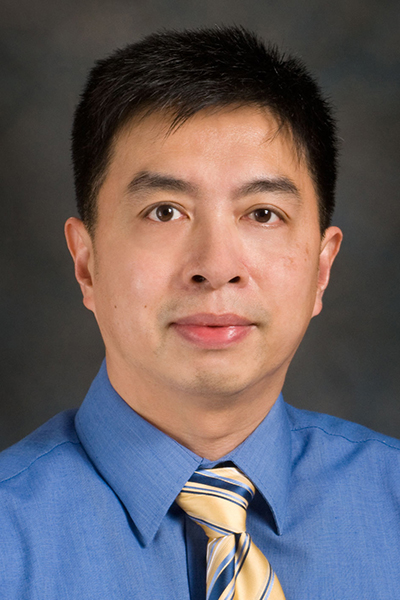
Better understanding of how tumor cells respond to immune checkpoint inhibition (ICI) is revealing new approaches to predict and improve treatment response.
“Knowing your cancer subtype and immune type provides important information for the biology of breast cancer, baseline prognosis, and prediction of benefit from multiple types of therapy currently used in breast cancer,” said Charles M. Perou, PhD, May Goldman Shaw Distinguished Professor of Molecular Oncology, Linebarger Comprehensive Cancer Center Computational Medicine Program, University of North Carolina.
“Robust findings from different labs using different technologies and different patients are showing the same result. High expression of immune cell signatures in tumors predicts typically good things, a better prognosis, better response to therapy.”
Dr. Perou opened Translational Science Forum 2 “Mechanisms of Response to Immune Checkpoint Therapies” on Wednesday, Dec. 9.
The broad importance of tumor infiltration by B-cells, T-cells, and macrophages to treatment response in triple negative breast cancer (TNBC) is well established, Dr. Perou said. But the presence any specific immune cell population has failed to show consistent correlation with chemotherapy treatment outcomes.
Genomic analysis of the CALGB 40603 (Alliance) neoadjuvant trial in TNBC identified a specific IgG signature that is associated with both pathological complete response and event-free survival for at least eight years.
“We could use this signature to identify patients who may not need additional therapy beyond the initial chemotherapy,” he said.
The finding is explored in detail in Poster PD9-03, presented on Thursday, Dec. 10.
His lab has also identified a combined B-cell/T-cell cooperativity signature that predicts response to three different ICI regimens across multiple cancer types. Early-stage work suggests that CD40 expression can enhance the body’s anti-tumor response.
“There may be a therapeutic role for CD40,” Dr. Perou said. “For now, we can and we should use gene expressing profiles in clinical practice.”
Defects in DNA replication may be another useful predictor of ICI response and a potential therapeutic target.

DNA replication is a quick and reliable response to damage, said Shiaw-Yih Lin, PhD, Professor of Systems Biology and Chief of Systems and Translational DNA Repair, The University of Texas MD Anderson Cancer Center. In normal cells, about 10 base pairs can be replicated every second, the equivalent of an auto speeding along at 300 miles per hour.
Replication can be stressed by unrepaired DNA lesions, limited availability of nucleotides, unexpected interaction with RNA transcription, and other defects. Replication stress response defect (RSRD) allows cells with high replication stress to survive and proliferate, often forming tumors.
Working with murine models, Dr. Lin’s lab found that RSRD gene signatures can accurately predict response to ICI. In human TNBC, high accumulations of single strand DNA (ssDNA) in tumor cytoplasm emerged as a very accurate biomarker for RSRD. Tumors with high ssDNA are more responsive to ICI; tumors with low ssDNA are less responsive.
Cytoplasmic accumulation of ssDNA also correlates with RSRD levels and ICI responsiveness in other tumors, including renal cell carcinoma, glioblastoma, clear cell renal cell carcinoma, melanoma, gastric cancer, and urothelial cancer.
“Changing RSRD status can change tumor response,” Dr. Lin said. “We may be able to change RSRD status with a drug to improve tumor response to immune checkpoint therapy.”
SABCS registrants will have exclusive on-demand access to this and other virtual SABCS programming until March 13, 2021.

